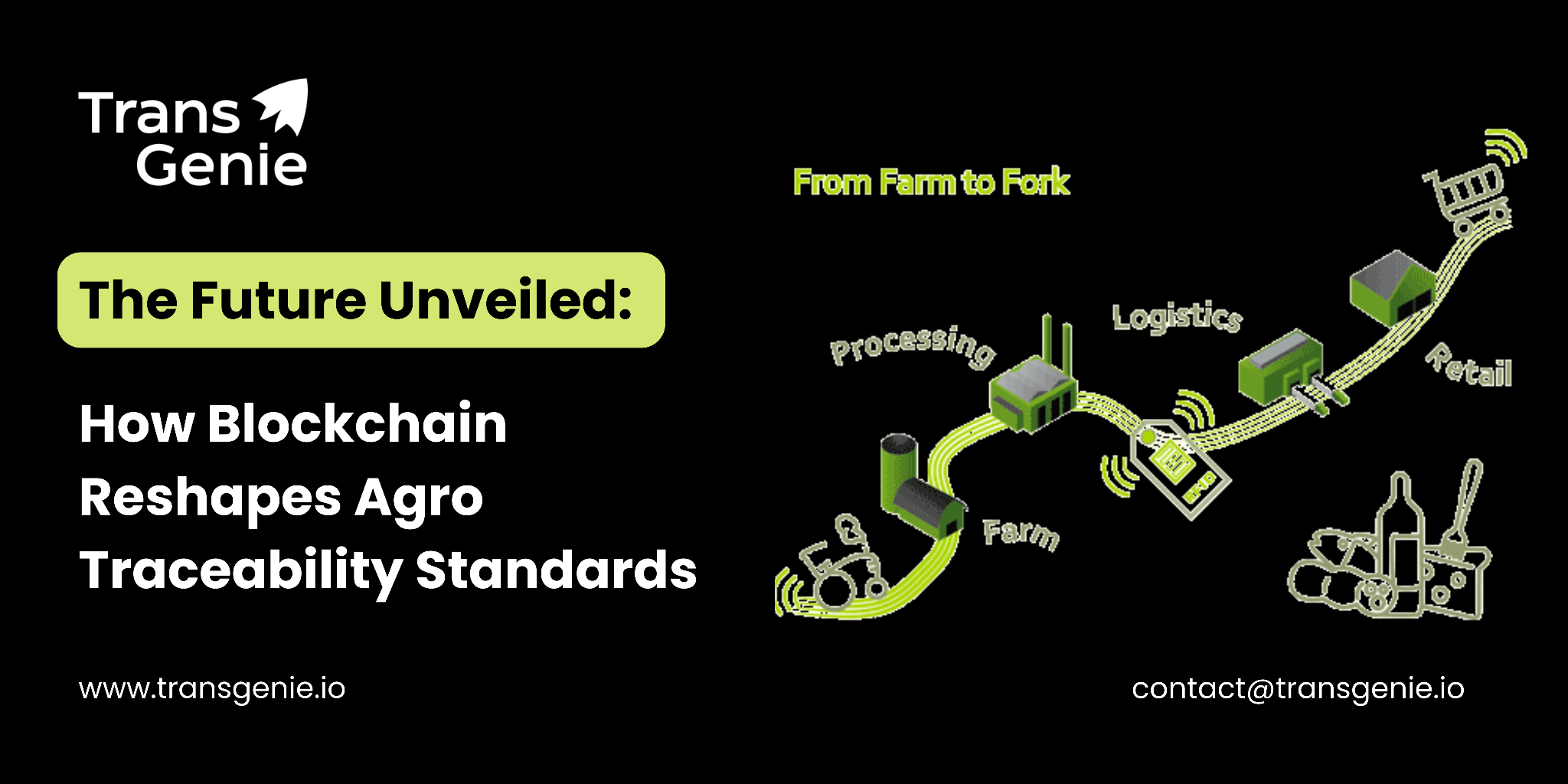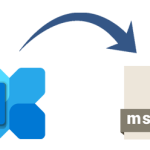Blockchain traceability is at the core of the technological revolution that the agroindustry is about to experience. Digital ledger technology is more than just a catchphrase; it represents a fundamental change in the way that food production and supply chains are transparent, secure, and efficient. This thorough investigation clarifies the workings of blockchain, its significant influence on the agroindustry, and the path forward for an open and sustainable global food system.
Blockchain Traceability in Agroindustry
Blockchain traceability in the agroindustry revolutionizes transparency and accountability. By integrating blockchain technology, the agroindustry gains a tamper-proof ledger, ensuring the authenticity of each step in the supply chain. This innovation enables real-time tracking of products from farm to table, reducing fraud and enhancing food safety. Smart contracts in blockchain facilitate automated compliance with quality standards and certifications. Additionally, consumers benefit from access to detailed information about the origin, cultivation practices, and environmental impact of agricultural products. Blockchain traceability software in agroindustry not only ensures a trustworthy and efficient supply chain but also fosters consumer confidence in sustainable and ethical farming practices.
Real Applications of blockchain traceability in Agroindustry
There are multiple major applications of blockchain traceability in the agroindustry that each focus on a different aspect of the challenges faced by the supply chain.
Monitoring and Openness
Products can be tracked from its point of origin through each step of the supply chain to the final customer due to blockchain traceability. Every transaction—planting, harvesting, processing, or shipping—that is entered into the blockchain is time-stamped and unchangeable. This promotes trust and transparency by enabling customers to confirm the provenance and handling of their food in addition to guaranteeing the integrity of the product’s journey.
Intelligent Contracts for Optimal Performance
Contracts between parties are enforced and transactions are automated by smart contracts. These contracts have the potential to streamline transactions and reduce paperwork in the agroindustry by automatically releasing payments to farmers upon confirmation that a delivery has satisfied predetermined quality standards.
Taking Action Against Food Fraud
Blockchain is an effective tool against food fraud because of its immutability. Blockchain technology makes it extremely difficult for fraudulent products to enter the market by securely recording each product’s journey. Authenticity is a major selling factor for high-end products like fair-trade or organic produce, so this is especially beneficial.
Benefits of blockchain traceability in the Agroindustry
Many systemic challenges facing the agroindustry are addressed by the multitude of benefits that come with implementing blockchain traceability in this area.
Improvements in Food Safety and Quality Control
Because of its immutable record-keeping and real-time tracking features, blockchain traceability transforms food safety and quality assurance. This is how it’s done:
Swift Traceability: Blockchain technology enables prompt product traceback to its source in the case of contamination, significantly cutting down on the time and resources required for investigations. By enabling the quick identification and removal of tainted items from shelves, this capacity helps avert significant public health emergencies.
Decreased Inefficiencies
The agroindustry has several major issues, and blockchain traceability has a tremendous influence on minimizing waste.
Efficiency of the supply chain: Blockchain helps businesses run more efficiently by giving them a clear and accurate record of the movements in the chain. Increased accuracy in demand forecasting can result from this optimization, which can also lower food waste by lowering overproduction and surplus inventories.
Product Freshness: Retailers can more precisely monitor a product’s freshness in real time with blockchain, preventing food from going bad before it is sold. This feature not only lowers waste but also advances food safety procedures.
A Rise in Customer Confidence
An unparalleled degree of customer trust is fostered by the openness that blockchain technology provides:
Openness and provenance: Customers are able to learn about a product’s origins, including its place of cultivation, processing, and retail delivery. Customers are more confident in the brand since they can see how the product is made and are reassured about the safety and quality of the food they are eating.
Authenticity Verification: Blockchain technology offers a tamper-proof verification mechanism for goods that make claims to be fair-trade, organic, or non-GMO. Customers may independently verify these claims to make sure they are receiving the goods for which they paid and that the claims align with their values.
Financial Rewards for Eco-Friendliness
Blockchain traceability helps producers that care about the environment by coordinating financial incentives with sustainable practices:
Verification of Sustainable Practices: Producers that follow sustainable practices may record their procedures on the blockchain, demonstrating their dedication to sustainability. You can utilize these documents to get into exclusive markets or to meet legal obligations for environmentally friendly business operations.
Efficient Use of Resources: By offering comprehensive data on supply chain inefficiencies, blockchain technology helps improve the allocation of resources. A more sustainable agroindustry is facilitated by this optimization, which lowers greenhouse gas emissions and energy usage.
Better Access to the Market and Equitable Pricing
Blockchain traceability guarantees more equitable pricing practices and democratizes market access:
Direct Access to Markets: By using blockchain platforms, small-scale farmers may communicate directly with customers, avoiding middlemen who frequently keep a sizable share of the sales. Better pricing for farmers and more reasonably priced goods for consumers may result from this direct access.
Transparent price: All participants in the supply chain will be able to comprehend price methods due to blockchain’s openness. By ensuring that producers receive an equitable portion of the value of the finished product, this transparency can help avoid price manipulation.
Getting Through the Obstacles
Although blockchain traceability has potential benefits for the agriculture sector, there are several barriers to its integration, such as the need for uniformity, upfront costs, and technological complexity. Moreover, widespread participation at every stage of the supply chain—from large enterprises to small-scale farmers—is essential to its success. It is essential to train stakeholders and create interoperable systems that can communicate easily across a range of platforms and standards in order to overcome these obstacles.
Complex Supply Chains: From farm to fork, agroindustry supply chains involve several phases, making them intrinsically complex. Processes including planting, harvesting, processing, packing, and distribution are all part of each step. It is difficult to collect and digitize data for blockchain integration at every stage of such a convoluted chain, necessitating close coordination and collaboration amongst all parties involved.
Data Integrity and Quality: The quality and integrity of the data that is entered into the blockchain system is a major factor in how well it ensures traceability and transparency. Garbage in, garbage out (GIGO) exists, which means that erroneous or false data has the potential to undermine the system as a whole. It is quite difficult to guarantee that data collected is precise, timely, and unchangeable.
Technological Integration and Adoption: The agroindustry may be negatively impacted by a lack of digital literacy and technical infrastructure, particularly in underdeveloped nations. Due to the expenses associated with deployment, training requirements, and system integration, small-scale farmers and local agribusinesses may find it challenging to utilize blockchain technology.
Interoperability Issues: Not every blockchain platform can communicate with every other platform in an easy way. The inability of players in the agroindustry supply chain to easily communicate and access data might result from a lack of standards, which can cause interoperability problems.
Privacy and Security: Blockchain technology is not impervious to cyberattacks, despite its improved security features. Furthermore, privacy issues are brought up by blockchain’s transparency aspect, particularly when it comes to protecting sensitive data about people or companies.
Legal and Regulatory Difficulties: The legal and regulatory environment surrounding blockchain technology is constantly developing. There may be doubts over jurisdiction, the legality of online transactions, and adherence to national and international laws, especially those pertaining to the requirements of food safety and quality.
Conclusion:
In the midst of these challenges, Transgenie blockchain traceability software stands out as a transformative force in the agroindustry. Offering comprehensive solutions to complexities such as data integrity, technological integration, and interoperability, Transgenie streamlines the entire supply chain process. Its ability to securely track products, enforce contracts, and verify authenticity fosters unparalleled transparency and trust among stakeholders. By empowering farmers, businesses, and consumers with real-time information and immutable records, Transgenie paves the way for a more efficient, sustainable, and resilient agroindustry ecosystem.


